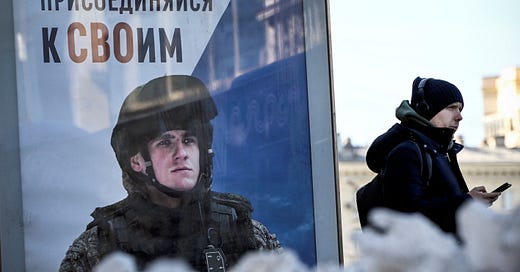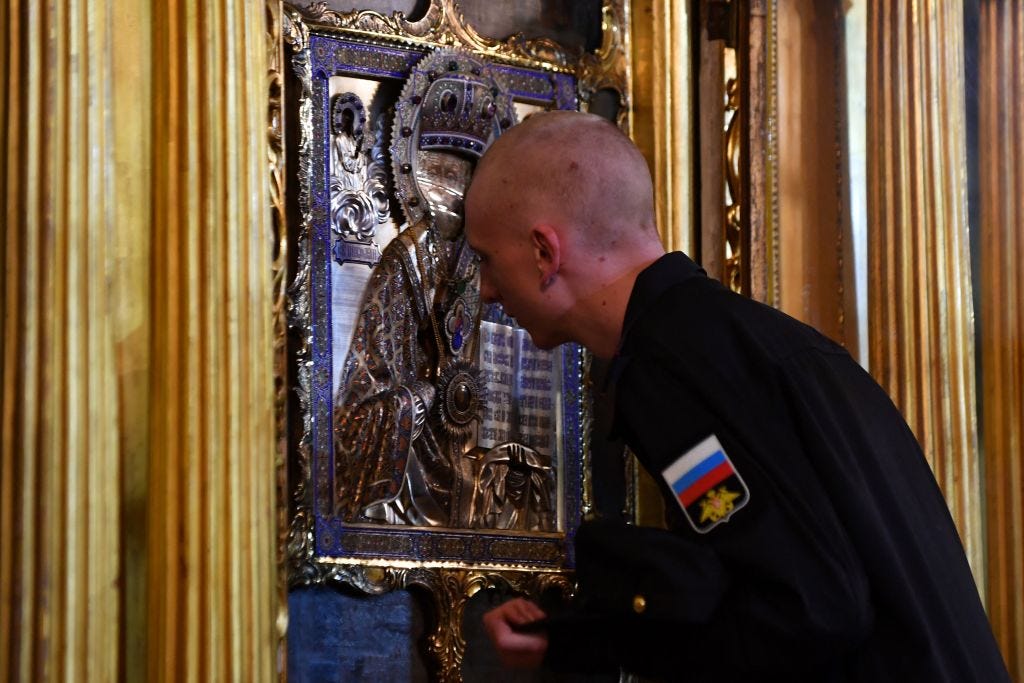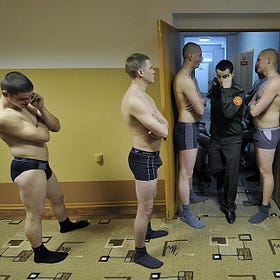Cash for soldiers: Russian regions paying staggering sums to induce soldiers to sign up
BBC Russian investigation has shown new patterns emerging in recruitment of new fighters for the war in Ukraine.
By Yaroslava Kiryukhina.
A study by BBC News Russian can reveal that Russian regional authorities are offering cash bonuses of up to 4 million roubles (nearly 40,000 US dollars) to induce local men to sign up to fight in Ukraine. In the short term the money can be life-changing for individual soldiers and their families, but is this an effective or sustainable way for Russia to keep fighting the war?
When Vladimir Putin announced last July that anyone volunteering to join the army would be eligible for a 400,000 rouble recruitment bonus, he set off a race between the country’s regional governors over who could stump up the most to boost troop levels on the frontline.
Every region responded with their own additional inducements — some pledging to double the basic payment and others offering to boost the bonuses to as much as 2 million roubles — that’s the equivalent of just under 20,000 US dollars.
Many regional governors clearly saw the issue as an opportunity to demonstrate their loyalty to Moscow and went public with their particular initiatives.
The Governor of Chuvashia Oleg Nikolaev told Vedomosti newspaper he had decided to increase the signing on bonus in his region from one million to 1.4 million roubles, in order to deliver “maximum support” to soldiers and their families, at what he called “a difficult time”.
BBC Russian has compared what’s on offer to new recruits across the country and we have calculated that 60% of regions are now paying recruitment bonuses of more than one million roubles (just under 10K USD) to sign up, and 25 per cent are paying two million roubles or more.
In a country where the average annual wage is around one million roubles, these are staggering, and life-changing sums.
Even the lowest cash inducements now on offer — 800,000 roubles are enough to buy a new Lada car. The highest current recruitment bonus — four million roubles in Samara region — is enough to buy a two-bedroom flat in the regional capital, and still to have some money left over.
On top of the signing on bonus, new recruits can also expect to receive a regular army salary and payouts for injuries.
“The fact that in Russia they’re not only paying people to join the army but increasing that pay shows there aren’t enough people volunteering to go to war – and for various reasons, the government isn’t willing to begin another round of conscription.”
Different approaches
By studying the numbers we can see some interesting patterns emerging as regions do battle to entice more and more new recruits.
In Samara — the region offering the enormous 4 million rouble bonus — the payment is only on offer for a short window until 1st February. Ulyanovsk and Tver regions have also made similar limited special offers to bump up their numbers.
Samara is also pioneering the use of recruiters to sign up new soldiers. It began offering 15,000 roubles (just under 150 USD) per recruit in October, but hiked the fees to 100,000 (just under 1000 USD) a month later.
Twelve other regions followed suit, and by December were offering recruitment fees ranging from 10,000 to 100,000 roubles, according to government decrees and regional media.
At the same time some regions have actually cut their recruitment budgets.
Belgorod, a border region that often faces Ukrainian attacks, slashed its offer from 2.2 million to 800,000, and Novosibirsk dropped its bonus to the same amount from 1.1 million. It’s not clear why, but noteworthy that both regions are now experiencing budget deficit problems.
Many cities and municipalities across Russia are also offering their own cash incentives, on top of what’s being paid out on a federal and regional level. Amounts can vary depending on whether it’s a big city or smaller rural municipality in the same region.
Ufa in Bashkortostan is far ahead of the rest, handing over 700,000 to each recruit, while the average municipality seems to offer between 200,000 and 400,000 roubles.
Bashkortostan has provided huge numbers of soldiers for the war in Ukraine and as a result has suffered the most casualties of any region since September 2024, according to analysis by the BBC and Mediazona.
Is it working?
Although there are no figures to show how the new system has affected recruitment in individual regions, it’s clear that across the board, the introduction of cash payments has turbocharged recruitment.
A recent study by the independent media outlet Vazhnie Istorii showed that in September 2024 there were six times more new soldiers signing up across Russia than in the same month the previous year. But there are questions about how sustainable or effective cash incentives are likely to be in the longer term.
The practice of paying Russian men to sign up to fight in overseas wars was widely and effectively used by Yevgeny Prigozhin’s Wagner group, says BBC Russian Defence Correspondent Ilya Abishev.
But the group’s original approach of deploying well-paid and battle-hardened mercenaries into individual conflict zones rapidly morphed into something very different as the war in Ukraine progressed and Wagner began recruiting inexperienced and poorly-trained men from prisons. After Prigozhin’s death, the Dеfence Ministry has continued to use this approach to recruitment.
“The state has decided to pay enormous sums by Russian standards to anyone willing to hold a rifle, irrespective of their skills,” says Abishev.
“And the fact that in Russia they’re not only paying people to join the army but increasing that pay shows there aren’t enough people volunteering to go to war – and for various reasons, the government isn’t willing to begin another round of conscription.”
Read this story in Russian here.
Translated by Max de Haldevang.
English version edited by Jenny Norton.
‘Immoral but effective.’ How the ‘Wagner’ private military company lost 17,000 prisoners in the assault on Bakhmut
BBC Russian continues its investigation into the Kremlin’s war dead in Ukraine.
The shocking scale of theft in the Russian army
Theft on an industrial scale – why the Russian army’s supply shortages are often self-inflicted. BBC Russian investigates.









